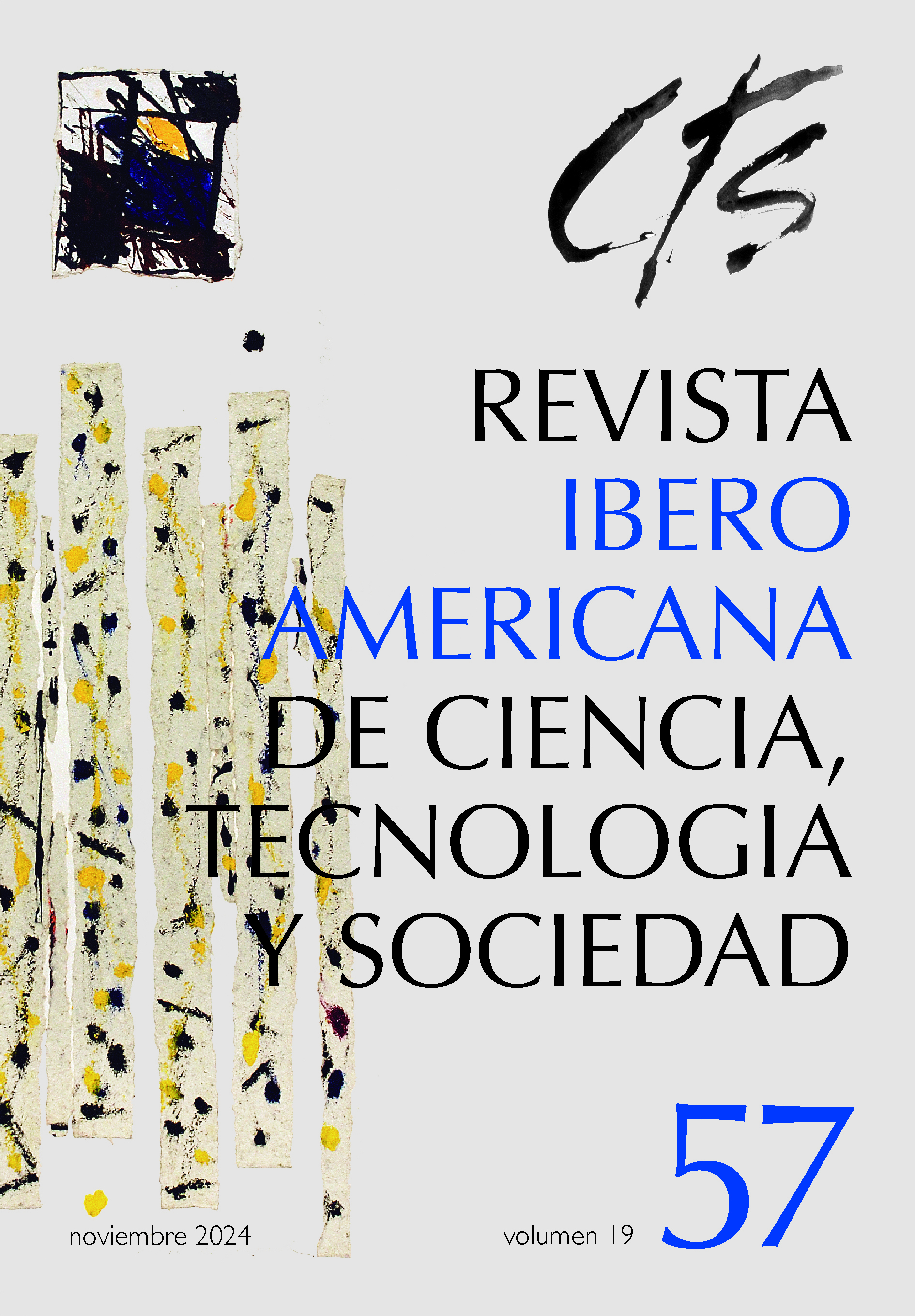Metaverse, Virtual Identity and Parallel Worlds
DOI:
https://doi.org/10.52712/issn.1850-0013-366Keywords:
metaverse, digitality, complexity, identity, virtualityAbstract
This article presents an analysis of the relevance of virtuality in contemporary reality, but also on its impact on the production of digital identities, and, in turn, on how they are developed in those worlds that we call “parallel” or metaverses. The article is presented in three sections: firstly, the question of identity; secondly, a differentiation between the real and the virtual; and thirdly, parallel worlds. The approach used is rooted in complex, non-linear and rhizomatic thinking. The main conclusion reached is that an ethical, inclusive, and responsible position is required in the face of these demands. Once it has been built, it will be possible to think of an augmented world-reality with an interface that could work as a navigation base.
Downloads
References
Acemoglu, D. (2022). El fin de las redes sociales reales. Project Syndicate, 7 de septiembre. Recuperado de: https://www.project-syndicate.org/commentary/social-media-destroying-human-communication-by-daron-acemoglu-2022-09/spanish.
Allard, L. & Vandenberghe, F. (2003). Express yourself! Les pages perso. Entre légitimation technopolitique de l'individualisme expressif et authenticité réflexive peer to peer. Réseaux, 21(117), 191-218. Recuperado de: https://culturesexpressives.fr/lib/exe/fetch.php?media=pages_perso.pdf.
Auray, N. (2005). Sosies et avatars dans les jeux: entre écriture et image. En L'image sosie. L'original et son double: Actes du 1er colloque international Icône-Image (Sens, 8 au 10 juillet 2004) (95-108). Sens: Editions Obsidiane. Recuperado de: https://biblio.ludocorpus.org/sites/default/files/Auray%20-%202004%20-%20Sosies%20et%20avatars%20dans%20les%20jeux%20entre%20%C3%A9criture%20et.pdf.
Bearcat, I. (2008). Les trois âges du virtuel dans la société numérique. En F. Beau (Dir.), Culture d’univers: jeux en réseau, mondes virtuels, le nouvel âge de la société numérique. Limoges: FYP Editions.
Casalegno, F. (2000). Aux frontières du virtuel et du reel, entrevista con Sherry Turkle sobre el impacto social de las nuevas formas de comunicación en linea. Sociétés, 68, pp. 9-18.
Colonna, V. (2004). Autofiction et autres mythomanies littéraires. Auch: Editions Tristam.
Cooper, R. (2007) Alter Ego: Avatars and their creators. Chris Boot.
Deleuze, G. (1996). L'actuel et le virtual. Dialogues (177-185). París: Flammarion.
Deleuze, G. & Guattari, F. (2002). Mil mesetas. Valencia: Pre-textos.
Ehrenberg, A. (2000). La fatiga de ser uno mismo. Depresión y sociedad. Buenos Aires: Nueva Visión.
Jauréguiberry, F. (2000). Le moi, le soi et Internet. Sociologie et sociétés, 32(2), 136-152. DOI: https://doi.org/10.7202/001364ar.
Juliao Vargas, C. G. (2012). Culturas juveniles y tribus urbanas: ¿homogeneización o diferenciación? Praxis Pedagógica, 13, 144-164. DOI: https://doi.org/10.26620/uniminuto.praxis.12.13.2012.144-164.
Juliao Vargas, C. G. (2014). Entre la apropiación de la pedagogía praxeológica y la fascinación por la educación virtual: una cuestión didáctica. Inventum, 9(16), 17–25. DOI: https://doi.org/10.26620/uniminuto.inventum.9.16.2014.17-25.
Kaufmann, J-C. (2005). L'invention de soi. Une théorie de l'identité. París: Armand Colin.
Kaufmann, J-C. (2015). Identidades. Una bomba de relojería. Barcelona: Ariel. https://www.elboomeran.com/upload/ficheros/obras/z02_identidades.pdf.
Lecarme, J. (1993). L 'autofiction: un mauvais genre?. En S. Doubrovsky, J. Lecarme & Ph. Lejeune (Dirs.), Autofictions & Cie (227/249). Nanterre: Centre de recherches interdisciplinaires sur les textes modernes/Université de Paris X.
Morin, E. & Ruiz, J. L. S. (2005). Con Edgar Morin, por un pensamiento complejo (Vol. 22). Buenos Aires: Ediciones AKAL.
Postman, N. (1991). Divertirse hasta morir. El discurso público en la era del “show bussines”. Ediciones de la Tempestad.
Proulx, S. & Latzko-Toth, G. (2000). La virtualité comme catégorie pour penser le social: l'usage de la notion de communauté virtuelle. Sociologie et sociétés, 32(2), 99-122. DOI: https://doi.org/10.7202/001598ar.
Sussan, R. (2009). Demain, les mondes virtuels. Limoges: FYP Editions.
Taylor, C. (1996). Identidad y reconocimiento. Revista de Investigaciones Filosóficas y Políticas, 7, 10-19. Recuperado de: https://dialnet.unirioja.es/servlet/articulo?codigo=2704736.
Taylor, C. (2006). Las fuentes del yo. Buenos Aires: Paidós.
Tisseron, S. (2008). Virtuel, mon amour. Penser, aimer, souffrir, à l'ère des nouvelles technologies. París: Albin Michel.
Tisseron, S. (2012). Rêver, fantasmer, virtualiser. Du virtuel psychique au virtuel numérique. París: Dunod.
Turkle, S. (1997). La vida en la pantalla: la construcción de la identidad en la era de Internet. Buenos Aires: Paidós.
Zarta Rojas, F. (2022). El rizoma literario: lo performativo del sujeto. Enunciación, 27(1), 45-55. DOI: https://doi.org/10.14483/22486798.18218.
Downloads
Published
How to Cite
Issue
Section
License
Copyright (c) 2023 CC Attribution 4.0

This work is licensed under a Creative Commons Attribution 4.0 International License.
All CTS's issues and academic articles are under a CC-BY license.
Since 2007, CTS has provided open and free access to all its contents, including the complete archive of its quarterly edition and the different products presented in its electronic platform. This decision is based on the belief that offering free access to published materials helps to build a greater and better exchange of knowledge.
In turn, for the quarterly edition, CTS allows institutional and thematic repositories, as well as personal web pages, to self-archive articles in their post-print or editorial version, immediately after the publication of the final version of each issue and under the condition that a link to the original source will be incorporated into the self-archive.











